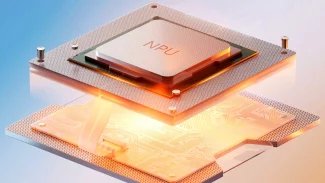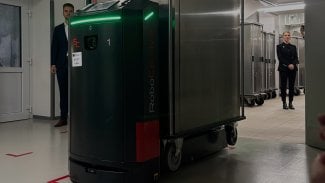dpkg-scansources
NAME
dpkg-scansources - create Sources index files
.
SYNOPSIS
dpkg-scansources
[options]
binary-dir
[override-file
[path-prefix]]
>
Sources
.
DESCRIPTION
dpkg-scansources scans the given binary-dir for .dsc files.
These are used to create a Debian source index, which is output to
stdout.
The override-file, if given, is used to set priorities in the resulting
index records and to override the maintainer field given in the .dsc
files. See
dpkg-scanpackages(1)
for the format of this file. \s-1NB:\s0 Since
the override file is indexed by binary, not source, packages, there's a bit
of a problem here. The current implementation uses the highest priority of
all the binary packages produced by a .dsc file for the priority of the
source package, and the override entry for the first binary package listed
in the .dsc file to modify maintainer information. This might change.
The path-prefix, if given, is prepended to the directory field in the
generated source index. You generally use this to make the directory
fields contain the path from the top of the Debian archive hierarchy.
.
Note:
If you want to access the generated Sources file with
apt(8)
you will probably need to compress the file with
gzip(1)
(generating a Sources.gz file). apt ignores uncompressed Sources files
except on local access (i.e.
file://
sources).
.
OPTIONS
"-n,
Don't sort the index records. Normally they are sorted by source package
name.
"-s,
Use file as the source override file. The default is the name of the
override file you specified with .src appended.
The source override file is in a different format from the binary override
file. It contains only two whitespace separated fields, the first is the
source package name and the second is the section. Blank lines and comment
lines are ignored in the normal manner. If a package appears in both files
the source override takes precedence for setting the section.
"--debug"
Turn debugging on.
"--help"
Show the usage message and exit.
"--version"
Show the version and exit.
.
SEE ALSO
deb\-override(5),
dpkg\-scanpackages(1).
.
AUTHOR
Roderick Schertler <roderick@argon.org>



















